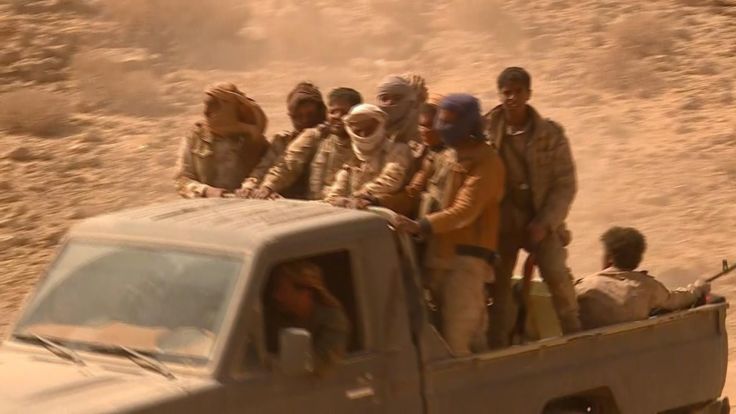A senior Yemeni commander has told Sky News the government is winning the civil war.
Speaking from recently captured ground on top of Mount Nmeh, General Nasser al Dhaybani said his troops are moving closer to the capital Sana’a “every day” and will retake it “as soon as the conditions are right”.
He described controversial Saudi airstrikes as “excellent” and “helpful” but said he did not want to destroy the city because “there are two million civilians there and they are also Yemenis”.
“Instead we are taking the mountains around it,” he said.
The officer’s optimism is at odds with a conflict that has reached a grim stalemate in many areas and will enter its fourth year next month.
The frontline has been relatively static, taking months to move only a few miles. At some points, the two sides are so close they can shout insults at one another.
The rebel Houthis have controlled Sana’a since September 2014.
Since then, 10,000 people are estimated to have been killed in the war, many of them civilians.
More than 20 million have been displaced from their homes as a result of the fighting, and a cholera and diphtheria epidemic is sweeping the country.
Aid agencies estimate as many as eight million people are hovering on the brink of starvation.
The Houthis have recently fired Iranian-supplied ballistic missiles at neighbouring Saudi Arabia – with one landing close to Riyadh’s main commercial airport.
Saudi Arabia responded by re-imposing a naval and air blockade which has prevented vital food and medical supplies from reaching those in need.
Stephen Anderson, director of the UN’s World Food Programme in Yemen, described the crisis as “entirely man-made”.
“Unfortunately Yemen right now is faced with the world’s worst humanitarian crisis,” he told Sky News.
“75% of the population, around 22 million people, need some form of humanitarian assistance.
“About half of those people are in acute need – that means they really need life-saving support for them to just survive.”
Sky News was given rare access to a country that has at times proved hard for journalists and aid agencies to enter.
We were flown into Yemen on an aid flight operated by the Royal Saudi Air Force. The visit came a week after Riyadh announced a £1.06bn humanitarian package for Yemen.
In the government-controlled city of Ma’rib, men, women and children wait for prosthetic limbs to replace the arms and legs they have lost to landmines left behind by the retreating Houthis.
One man told us he had been waiting three years for treatment, and a 17-year-old boy explained how he lost his leg after joining up to fight in his school holidays.
The director of Ma’rib General Hospital, Dr Mohamed al Kobati, said he had to serve a population of two million people over five provinces, with only 120 beds.
“Most of the cases, they are trauma cases from the war,” he said.
Referring to war casualties, he explained most did not make it to hospital.
“It takes time to reach (hospital), they are suffering from bleeding, severe bleeding. So most of them die.”


